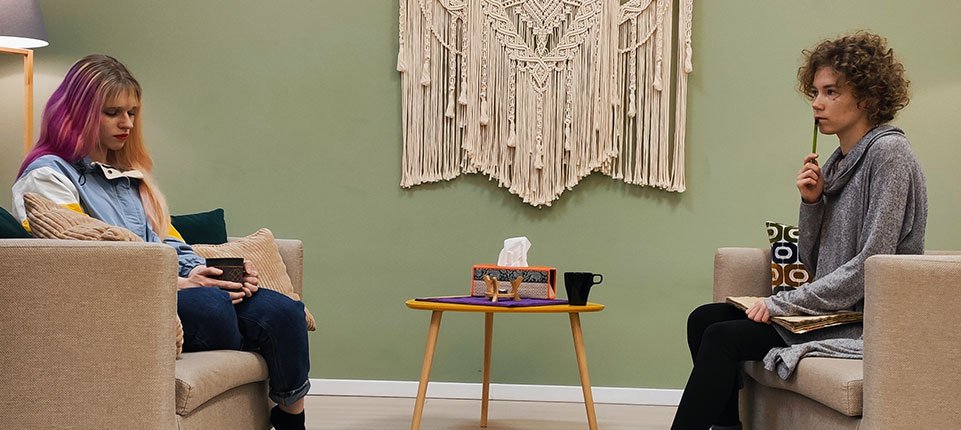May 2, 2022
What is alcohol and drug counselling?

Counselling is the most common type of treatment for alcohol and drug use.1
If you or someone you care about has issues with alcohol or drugs, having a chat with a counsellor is a great first step.
If you feel uncertain about what seeing a counsellor might involve, we’ve put together a Q&A to help.
Who provides alcohol and drug counselling services?
Alcohol and drug counselling services are provided by workers experienced in alcohol and other drug-related matters, such as counsellors, case managers, psychologists, psychiatrists, general practitioners and social workers.1, 2
Counsellors usually work out of treatment centres, specialist clinics, community centres or drug and alcohol services.
Are there different types of counselling?
Yes. You can choose to undertake individual counselling or do group sessions with other people who are also seeking treatment for substance use. Family counselling is also available.
Depending on the service, counselling sessions can be face-to-face, online or via telephone.1, 2
You might go to counselling for a single session, or over a longer period of time where you regularly see your counsellor or attend group sessions.1
Is alcohol and drug counselling confidential?
Yes. Counsellors are ethically bound to keep whatever you tell them confidential.1 The exception is when a counsellor has a duty of care to report something that threatens your safety or the safety of others.3
How much does counselling cost?
Most alcohol and drug counselling services are free or provided at a reduced cost to eligible Medicare card holders. The cost will vary depending on the type of service and how or where you access it.
Contact the clinic or service before you attend to find out about costs.
Will I have to wait?
Wait times will vary for each clinic or service. It also depends on what their current volume of requests are.
What should I expect from alcohol and drug counselling?
Alcohol and drug counsellors will:
- listen non-judgmentally
- help you identify goals around your substance use
- provide helpful strategies to achieve these goals
- link you with other community supports and services.4
There’s lots of ways counsellors might approach treatment and they may use more than one technique. Examples include:
- Motivational interviewing: the counsellor works with you to help strengthen your readiness to change.
- Problem solving: the counsellor develops your problem-solving skills to help deal with issues you may encounter while trying to change your substance use.
- Relapse prevention and management: learning the skills and confidence you need to avoid and deal with lapses, and prevent lapses turning into full relapses.
- Harm reduction: provides you with strategies to help reduce the harms relating to drug use. For example – using sterile injecting equipment, not mixing certain drugs or having naloxone available when using opioids.
- Grounding: these techniques help you to focus on the present moment as a way of managing distressing thoughts or memories.
- Challenging unhelpful thinking: helps to identify and address automatic thoughts that connect to difficult feelings and/or unhelpful behaviour.5
What if I don’t connect well with my counsellor?
That’s ok! For some people it can take a few tries to find a counsellor who is right for you. The important thing is to keep trying until you find someone you connect really well with.
You’re under no obligation to see a counsellor again if you think it isn’t quite working for you.
What about online or phone counselling?
The stigma associated with alcohol and other drug use can make it feel difficult to seek help.
For some, speaking to a professional via online webchat or video/phone call (telehealth) can feel less daunting, and has other advantages including:
- It’s convenient and flexible – you can start a session anywhere, as long as you have a device that can connect to the internet. Some webchat services are also 24/7.
- It gets around the barriers that may prevent you from attending in-person counselling sessions, such as a limited mobility, travel times, geographic location or waiting lists.
- Webchat services are completely free, other than any data costs from your internet service provider. Telehealth consultations can also be free if you have a Medicare card and you find a GP who bulk bills.
You can access online counselling anywhere in Australia through Counselling Online.
What’s the best way for me to get in touch with a counselling service?
There are a few ways you can connect with a counselling service.
- Speak to your GP: Your doctor can provide alcohol and other drug advice and refer you to support and treatment options like counselling.
- Call ADIS: You can call the Alcohol and Drug Information Service (ADIS) in your state or territory on 1800 250 015. Staff on these phone lines can help you find a suitable counselling service.
- Contact a service directly: You can also contact counselling services directly if you know of services in your area or come across one after doing an internet search.
- Explore service options through Path2Help: An intuitive online tool designed to help you find alcohol and drug support tailored to yourself or a loved one.
If you’d like to learn more about alcohol and drug counselling, see Counselling Guidelines: Alcohol and other drug issues.
- Better Health Channel. Alcohol and drug treatments and programs [updated 26 July 2019; cited 23 March 23 2022].
- Victorian Government Department of Health. Alcohol and other drug counselling [updated 01 August 2017; cited 23 March].
- Better Health Channel. Counsellors 2022[Cited 23 March 2022].
- AdIS. Treatment Options: Queensland Government; 2018 [Cited 23 March 2022].
- Stone J, Marsh A, Dale A, Willis L, O'Toole S, Hefgott S, et al. Counselling guidelines: Alcohol and other drug issues (4th ed.). Perth, Western Australia: Mental Health Commission; 2019.